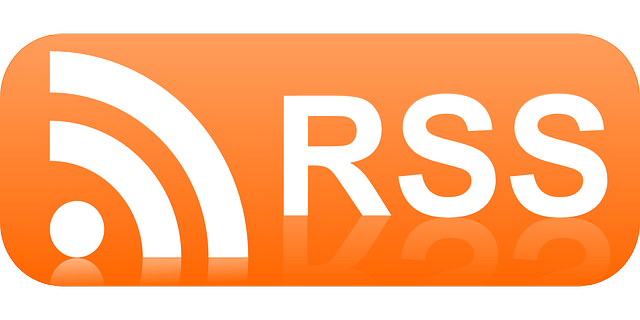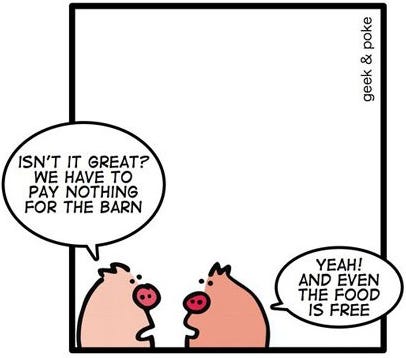What happened to the Internet? Maybe I’m just a nostalgic old fart pining for a misremembered past, but I can’t shake the feeling that the web was simply better circa 2011 than it is today.
I’m not just talking about the myriad ways in which social media is going wrong. (When was it ever going right?) The problem is that even when I avoid Facebook and other carcinogens, my day-to-day experience of “surfing the web” just ain’t what it used to be. The good stuff’s still available, but it’s buried under an ever-growing pile of clickbait, distraction, outrage porn, and every other manner of soul-sucking, time-wasting, brain-draining digital bullshit. That stuff’s always been there to some extent, but it’s gotten way worse.
Back in the glory days I found sanctuary in Google Reader. This, for those not old or nerdy enough to remember, was the biggest hit in a now-moribund genre of app called the “RSS reader”, through which you could subscribe to blogs and meet all your content-consumption needs in one place. RSS readers are what the “news feed” should have been: a self-curated list of all and only the content you want to see. The problem was that no-one could ever figure out how to make money from them, and the decline of RSS became a death spiral when Google shuttered Reader in 2013. What happened next will shock you!
Economics aside, RSS was great for audiences because it encouraged a different writing style to today’s clickbait clusterfuck. In the RSS paradigm writers sought subscribers; nowadays they compete for clicks, and the difference between the two is the difference between marriage and meth. When your metric of success is your number of RSS subscribers, the incentive is to create intelligent, thoughtful content that makes the audience want to stick around, and that’s exactly what we got. My RSS inbox was a treasure trove of wonderful reading material that I miss dearly.
In the post-Reader world the game has changed. Suckering people in with a misleading headline above 300 lazy words of listicle won’t make anyone subscribe, but who cares? You still got an ad impression, and your next piece can be similarly worthless as long as it “maximises engagement”, which is startup-speak for “wastes the reader’s time”.*
RSS readers still exist, and RSS as a technology is still used behind the scenes in ways that only programmers need worry about, but few blogs have orange ‘subscribe’ buttons in the corner anymore. Even the word “blog” feels outdated; those single-author Wordpress sites that flourished a decade ago are dying out, with most of the action (that which hasn’t been sucked up by the social media black hole) moving to aggregator sites like Medium.com, a site whose honest tagline would be “Where Mediocrity Thrives”. Feedly provides a simulacrum of the Google Reader experience, but the hard part is finding anything worth subscribing to.

We’ll never escape this race to the bottom unless we return to the subscription model, and we’ll never manage that until we address the issues that made RSS fail. First and foremost, it’s time to accept that the written word can’t survive on advertising alone. When public discourse is “optimised” by the algorithms of advertisers, we end up living in one big YouTube comment section. It’s tearing us apart and it has to stop. Adverts have their time and place, but some percentage of the audience needs to bite the bullet and start paying authors directly.
I don’t know if a directly-funded subscription model is a viable future for the web as a whole, but it’s the only future I want to live in. It’s for all these reasons and more that I’m excited about the rise of Substack.
Substack - which, for slow people, is the site you’re currently reading - lets writers build a list of subscribers, distribute articles by email, and optionally limit content to those who pay. In recent months the platform has claimed some high-profile journalistic scalps including Andrew Sullivan, Glenn Greenwald and Matt Yglesias, and it’s showing every sign of becoming the next big thing.
Email isn’t my ideal way to receive reading material, but it’s probably the only workable option for the mass market. RSS was always a niche, nerdy tool for the technically fluent, but even my 89 year-old grandad knows how to use Apple Mail. Sure, Substack ain’t technologically groundbreaking, but maybe new ground doesn’t need to be broken? Great writing existed before the Internet and never needed to be “disrupted”.
To add icing to the cake, Substack’s recent note about their content moderation philosophy hit every reassuring note that my liberal ears could have asked for. It remains to be seen how much backbone they’ll show in the inevitable face of woke bullies and Twitter mobs, but for now I’m cautiously optimistic. Not that I necessarily plan on courting controversy, but in this troubling age of tech monopolies and nakedly-partisan corporate censorship I’m happy to support the rare platform that pays more than mere lip-service to liberal principles.
Which is to say that, after nine-ish years of sporadic blogging on my no-longer-extant personal site, the publication before your eyes will be the new home for my output. The current topic is “whatever I feel like”, which in the past has included travel, languages, digital nomadism, tech, health, politics, movies and more, but eventually I might narrow it down to something more coherent. In the meantime, subscribe here. I don’t plan on hiding behind a paywall just yet (although feel free to sign up for a paid subscription if you really want) but I’ll be publishing new posts every Friday.
Here’s to a saner Internet. 🥂
(Photo credit: NASA on Unsplash)
*Incidentally, podcasting never went through this shift. Podcast apps are merely RSS readers for audio, and podcasters are generally still subject to the same subscription-based incentives that used to power the blogosphere. Can it be a coincidence that podcasting is currently in a golden age?






Is paying for content going to make the internet better... I'm trying to wrap my head around what you're saying here.